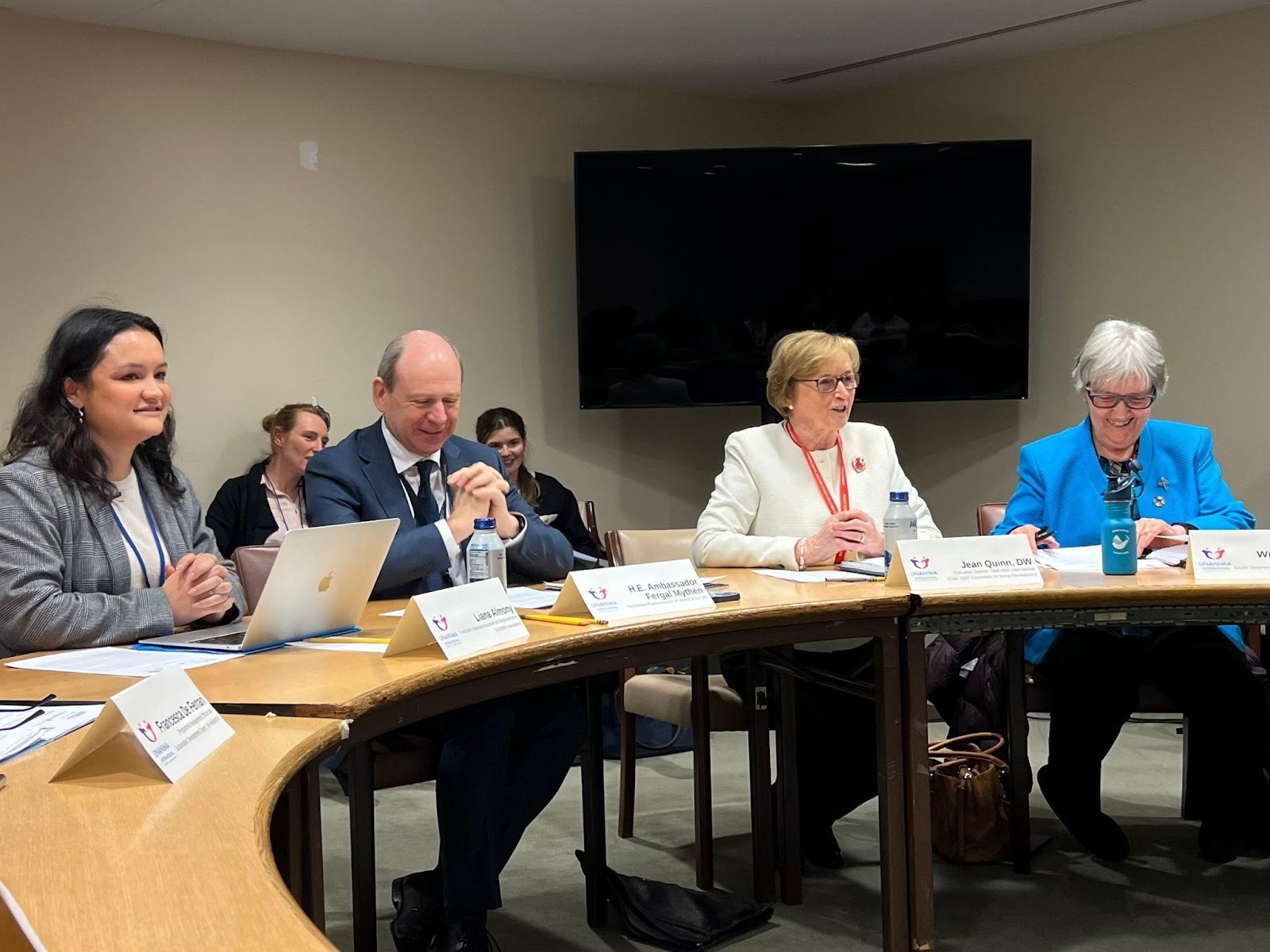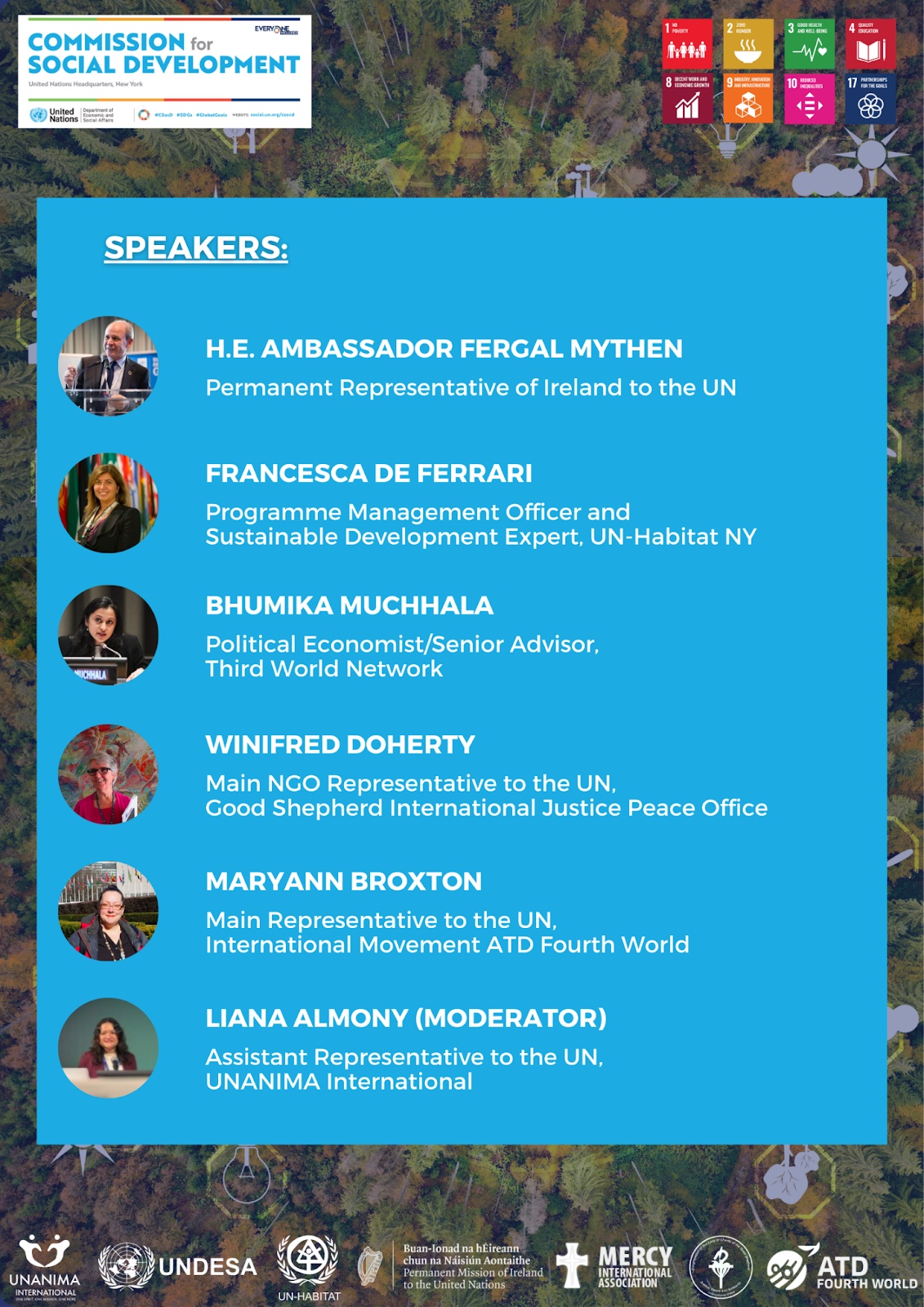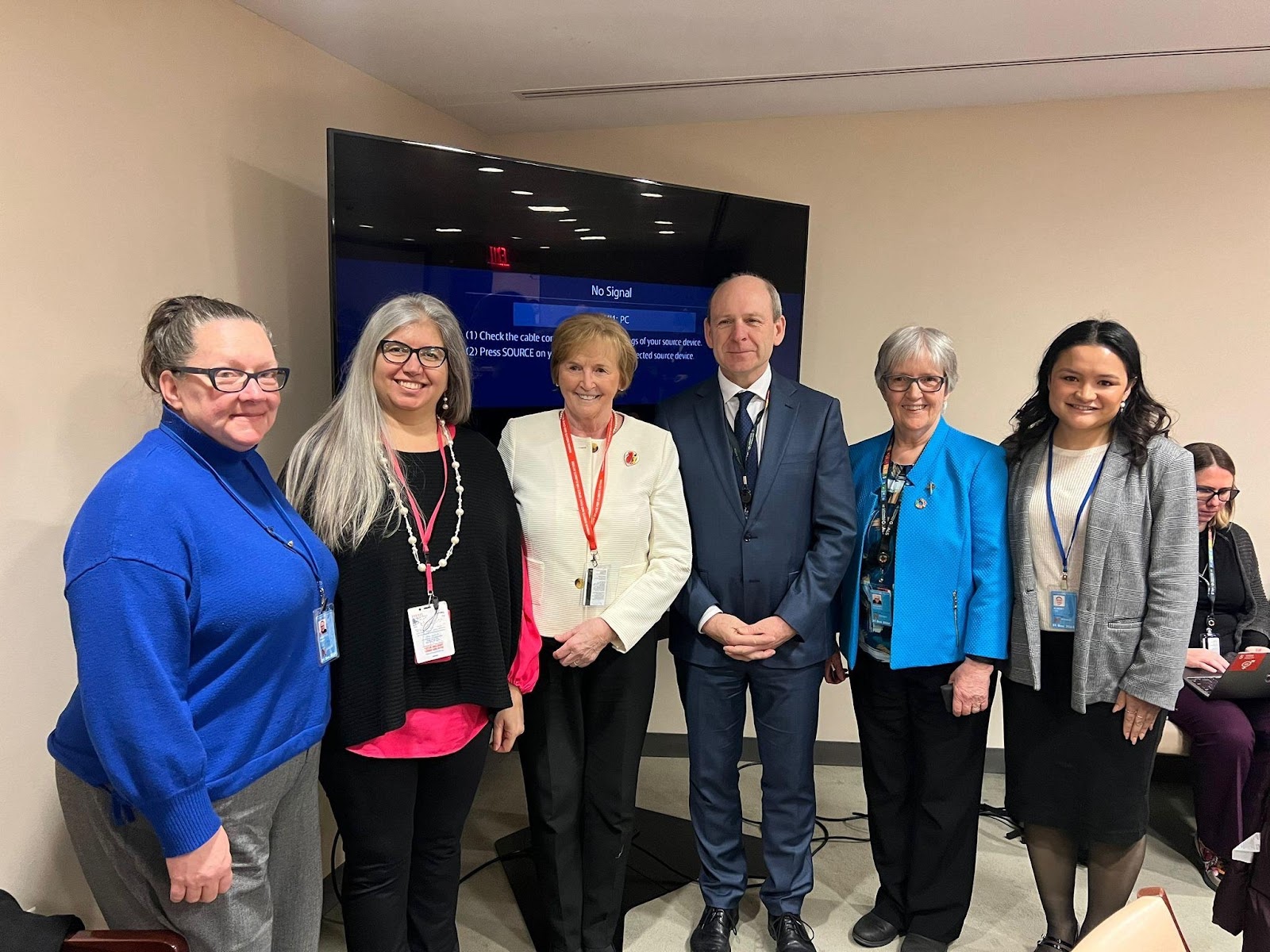
7th February 2024, Un Headquarters New York, CSocD62 Side Event organized by UNANIMA International and co-sponsored by UN DESA, UN HABITAT, the Permanent Mission of Ireland to the UN, Mercy International Association, Good Shepherd International Justice Peace Office, and International Movement ATD Fourth World. The event brought together a multilateral panel of experts to address the global “growth at all costs” mindset as a driver of inequality, and reflect on how to foster a more inclusive and equitable future.
The moderator, Liana Almony (Executive Assistant, UNANIMA International) introduced the topic by describing the systemic and societal biases created by the commodification of people, place and planet, and how those biases act as barriers to quality care and resources for those experiencing poverty.

The keynote speaker, H.E. Ambassador Fergal Mythen (Permanent Representative of the Mission of Ireland to the UN) emphasized that inequality stems from policy decisions, and stressed the importance of civil society engagement in decision-making at both the national and global level. He discussed new social protection policies the government of Ireland has implemented to address structural and societal inequality, highlighting that these issues are faced by wealthy countries too, not just those in the Global South.
Francesca de Ferrari (Programme Management Officer, UN HABITAT New York) reflected on the significance of housing justice for poverty eradication and highlighted the Secretary-General’s Report on Inclusive Policies and Programmes to Address Homelessness.
Bhumika Muchhala (Polital Economist/Senior Advisor, Third World Network) contributed to the discussion as a representative of academia, providing insights on how specific economic policies like austerity have compounded intersectional inequalities, especially for women and girls in debt-ridden countries. She illustrated how global inequalities are a result of not only systemic but historical drivers, ultimately leading to crises and a breakdown of the social contract.
Winifred Doherty (Main Representative to the UN, Good Shepherd International Justice Peace Office) provided examples of just how far reaching the forces of commodification are, explaining how commodification has come to define who can control their own lives.
She advocated for a new economic and social system that decouples economic prosperity and well-being from resource consumption and environmental degradation.
Maryann Broxton (Main Representative to the UN, International Movement ATD Fourth World) shared insights on multidimensional poverty based on ATD Fourth World’s work with people experiencing homelessness in New York City, exemplifying how the value of space is prioritized over people.
The discussion highlighted a few key recommendations for more effective and inclusive policy making with the ultimate goal of poverty eradication:
- The current global financial system has had a ripple effect on all other systems, creating a world which prioritizes wealth accumulation by few over billions of lives. Challenging these systems and structures requires new financial architecture which actualizes commitments to center human rights and social justice in policymaking at every level.
- Instead of focusing on solving problems reactively and/or individually in isolation, policymakers should focus on challenges as part of a much broader issue that requires structural change.
- A paradigm shift has been and is in the making. The 2030 Agenda and the Copenhagen Declaration provide a framework for how to achieve a more equitable and sustainable future. What is needed now is the implementation of that framework, and the political/economic/social will to do so.

For more information about the 62nd Commission for Social Development (CSocD62), please visit: https://social.desa.un.org/csocd/62nd
Source: UNANIMA International
 Welcome to the United Nations
Welcome to the United Nations